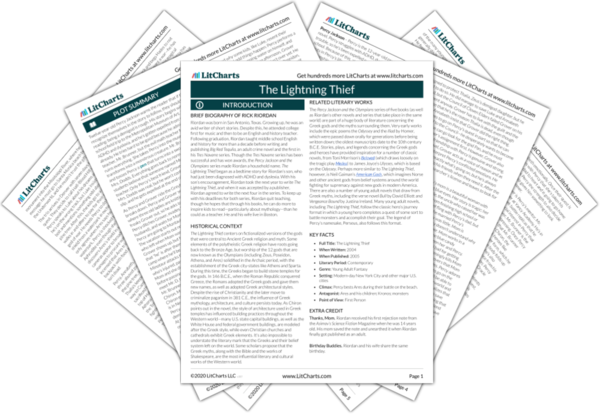Up until this point, the Greek gods and goddesses have just been one-dimensional characters to Percy. They’ve never existed in his mind as real people, with thoughts, feelings, and relationships all their own. However, Mr. D’s ability to summon thunder and turn his wine into Coke suggests that he, in fact, is one of these gods. In addition, Mr. D’s cantankerous nature and the fact that he’s being punished by his father challenges what Percy thinks he knows about the gods—in some ways, Mr. D seems like a normal person with relatively mundane problems. This passage serves as a quick introduction to the politics between the gods, something that Percy will have to pay close attention to as his journey continues.
